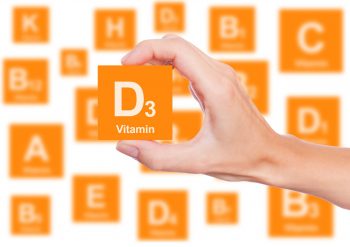By Joe Battaglia
Guest writer for Wake Up World
There are thousands of references in medical literature that show vitamin D’s effectiveness for both the prevention and treatment of cancer. Now, another large study shows that Vitamin D levels could have a direct influence in your risk of developing cancer.
According to the results of the Japanese cohort study, “almost every disease decreases in frequency and duration as we move towards equatorial populations, and the data shows that there is a minimum of a 1000 percent increase for many diseases in countries furthest from the equator, however we have obtained the same results based on data through populations and vitamin D supplementation,” said Dr. Anthony Petaku who studies the effects of Vitamin D2 and D3 on mutating cells.
[pro_ad_display_adzone id=”110028″]
Blood levels of vitamin D were inversely associated with risk of total cancer and liver cancer, found the multi-institute Japan-based research team writing in the BMJ.
Individuals in the three highest quartiles of serum vitamin D levels showed a risk reduction of between 20-25% for all cancers. For liver cancer, the risk reduction levels ranged from 30% (second quartile) to 55% (highest quartile). In liver cancer cases, the association was stronger in men than in women.
The researchers used data from the Japan Public Health Centre-based Prospective (JPHC) Study of 33,736 adults aged 40-69. Participants were monitored for 16 years, during which time 3,301 new cases of cancer were recorded. The study also included 4,044 randomly selected sub-cohort participants.
The scientists also found a significant inverse trend between vitamin D levels and pre-menopausal breast cancer, but not for prostate cancer and lung cancer.
A ceiling effect was observed for total cancer risk, suggesting that further risk reductions would not arise beyond a certain vitamin D blood concentration. The mean vitamin D level in the highest quartile was 76 nanomoles/litre (nmol/l). However, the researchers were not able to determine the optimal vitamin D concentration to minimise cancer risk.
“We observed that a higher circulating concentration of vitamin D was associated with a lower risk of subsequent cancer in a large Japanese population. Our findings support the hypothesis that vitamin D may confer protection against the risk of cancer,” commented first author Sanjeev Budhathoki, Centre for Public Health Sciences, National Cancer Centre, Chuo-ku, Tokyo.
“Nevertheless, the lower risk associated with higher circulating vitamin D concentration seemed to show a ceiling effect, which may suggest that although maintaining an optimal 25-hydroxyvitamin D concentration is important for prevention of cancer, having a concentration beyond this optimal level may provide no further benefit.
“Future studies are needed to clarify the dose-response pattern and the optimal concentrations for cancer prevention,” Budhathoki concluded.
Previous work has shown that higher vitamin D levels are associated lower incidence of colorectal and lung cancers. However, findings regarding total cancer risk reduction have been inconsistent. Additionally, previous studies have mainly examined European or American populations, while those in Asian populations are limited, said the researchers.
Related reading:
- Canadian Researchers Discover New Evidence That Vitamin D Shuts Down Cancer Cells
- Sunlight: Dermatologists and the Cancer Industry Tell You To Avoid It, Yet It Prevents Major Cancers
Also by Joe Battaglia:
- If You Want To Accelerate Brain Development In Children, Teach Them Music
- Psychedelic Renaissance is Bringing an Era of Incredible Natural Medicine
References:
- “Plasma 25-hydroxyvitamin D concentration and subsequent risk of total and site specific cancers in Japanese population: large case-cohort study within Japan Public Health Center-based Prospective Study cohort” — BMJ Journal 2018; 360 doi: https://doi.org/10.1136/bmj.k671 (Published 07 March 2018)
- “Vitamin D with Calcium Reduces Mortality: Patient Level Pooled Analysis of 70,528 Patients from Eight Major Vitamin D Trials” — The Journal of Clinical Endocrinology & Metabolism, Volume 97, Issue 8, 1 August 2012, Pages 2670–2681, https://doi.org/10.1210/jc.2011-3328 (Published 01 August 2012)
This article courtesy of Prevent Disease.
[pro_ad_display_adzone id=”110027″]







